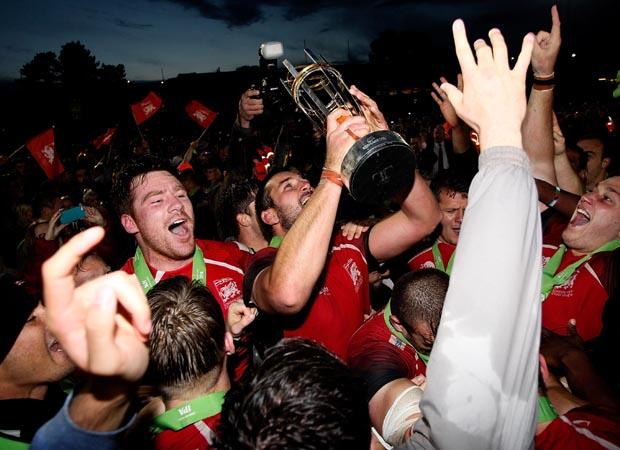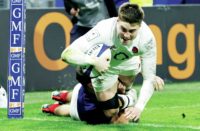 Here we are at the start of another year and, as usual, the hopes and aspirations of all rugby players and supporters are for a successful year in some form or another.
Here we are at the start of another year and, as usual, the hopes and aspirations of all rugby players and supporters are for a successful year in some form or another.
The last year started with hope and ambition for London Welsh that they could ‘bounce back' from the previous season's relegation but, having succeeded in their ambition, they must now wish they hadn't.
The first half of this season has been even more painful for newly-promoted Welsh than the usual embarrassment faced by the underfunded Championship champions, although that really should not have been the case.
London Welsh had won promotion in 2012 and had suffered the same level of underfunding they suffer now and so should have been more prepared for the inevitable funding imbalance they faced this time. But sadly they seem to have recruited the wrong personnel to be able to survive this vital first season in the Premiership.
The secret to Premiership longevity would seem to be surviving the first year by hook or by crook and then strengthening your squad as you develop your team to play at the Premiership level.
The standard, intensity and style of game played in the Championship is vastly different to that played in the Premiership and it takes time for players to adapt and learn – but time is one thing that clubs don't get with the busy season.
If London Welsh do what seems inevitable and go down, there will no doubt be calls once again from some quarters for some sort of Premiership ring fencing or (as Brian Moore suggested) a two year promotion/relegation system that allows teams the chance of a guaranteed two-year Premiership stint.
Personally, I think a better system could be similar to the French Top 14, where the promoted team are actually given more money than the established teams to enable them to have the chance to be competitive against clubs with established squads.
That would provide any promoted team with the funds to improve their squads without having to rely on a rich ‘sugar daddy' which in turn, would make the game more self-sufficient and all clubs more able to live within their means.
Reflecting on 2014, I suppose the disappointing results of both England and Wales in the autumn series against the SANZAR teams, although close, said more about where both countries are (in development terms) just a few months out from the World Cup than last year's Six Nations results.
Both will be taking a long hard look at where they are and what they have to do to make the necessary improvement in game performance and management, but with very different reasons. Wales, despite beating South Africa still haven't found a variation in style that will bring them back to the dynamic team of a few years ago and, unless they do, their predictability will be their downfall.
England's impressive if limited win over Australia masked what was a disappointing autumn that had promised so much.
Second in last season's Six Nations on points difference, they had shown steady if not dramatic improvements only to be curtailed by injury and inexperience come the autumn.
Although showing the strength in depth that England have, those injuries did nothing for the continuity and has stalled the progress that had been made and, if anything, forced England into a backward step. The forward dominance that was enough to demolish Australia will not work in the Six Nations, let alone the World Cup, so England will have to find and maintain some sort of backs game that can be played by any of the chosen combinations.
The various personnel at fly-half and centre has seen England chop and change playing style in every game and has not enabled them to play with any continuity of game plan, and so has stifled team development at a vital stage of World Cup preparation.
For Wales and England, February 6 could be the biggest game of the year in terms of the World Cup, although there are still months of planning and preparation ahead before that kicks off.
Ireland and Scotland will be looking forward to this year's Six Nation Championship with both having made progress last autumn, despite Scotland losing to New Zealand's second string.
Ireland will want to make a statement at the Six Nations and improve on last year's Six Nations title win with a Grand Slam.
In 2014 Ireland lost a true icon in Brian O'Driscoll but carried on seamlessly with a clean sheet of wins in the autumn and they will remain the team to beat in the Six Nations.
Scotland showed real progress under new coach Vern Cotter but will have to make a massive leap if they are not to fall back come the Six Nations. Confidence- boosting wins against second tier Tonga and a dispirited Argentina will count for nothing unless they can translate that into Six Nations success.
Congratulations to England's World Cup winning women's team members Sarah Hunter and Rochelle Clark on their MBE's, thoroughly deserved after the team's magnificent win. Just one thing bothers me; rugby is a team game where all players are reliant on each other, so if one deserves an honour so do the whole team.
When the men won in 2003 the World Cup squad all received honours – even the back room administration staff (including the Press officer) surely in these days of equality the women deserve the same?



























